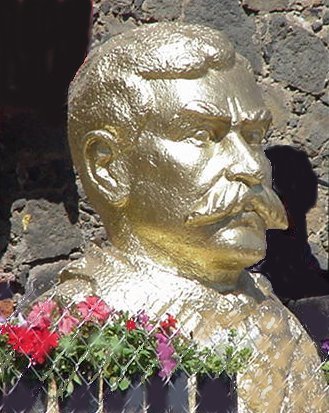
Recuerdos de General
Emiliano Zapata
Written by:Honorio Abúndez
Performed by: Anonymous
Disco INAH 26. Ed. Carlos Barreto Mark. México: SEP, 1984.

|
Sobre el sentir de mi Patria
Es que estaban ofendidos
|
About the feeling of my mother country
It was the townsfolk who were victims
|
Recuerdos de General Emiliano Zapata:
“Recuerdos de General Emiliano Zapata,” laments the death of the fearless
agrarian reformer and Revolutionary hero. The Zapatista Movement was the, “most
ideologically consistent movement of the revolution and,” (Warman, 92)
and thus the death of their leader was a tragic event. We see in this corrido
the line, “Con el acero en la mano,” (line 13) which although not
identical to the “con la pistola en su mano” strophe that characterizes
Gregorio Cortez, still illustrates Zapata as a cultural hero.
Despite his image as a hero, Zapata remained close to the common peasant, never
letting issues of status or pomp cloud his consciousness. Zapata fought for
his people and they responded with unfailing support and admiration as evidenced
in this corrido. Warman continues, “The Zapatistas were volunteers; they
never used forced recruitment and desertion was never really punished. They
fought for and among their own people,” (Warman, 92). And Knight further
expounds on this idea of communal involvement within the Zapatista movement.
“It was a communal movement not just simply in the narrow sense of demanding
the restitution and protection of communal lands but also because grievances,
membership and objectives were constituted at the level of the community”
(Knight, Vol.#1, 310). Zapata poetically illustrated this idea of personal and
communal accountability, always fighting out of an innate desire to help his
people and instigate sustainable agrarian reform. Through his actions and devotion
to the constant fight for agrarian reform Zapata was able to unite and galvanize
a valiant movement. Thus, he is remembered with great respect and admiration.